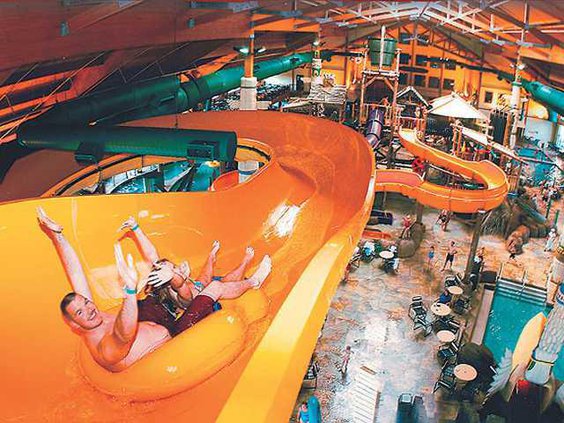To sell or lease, that is the question.
Back in 1999 more than 200 acres surrounding the Manteca municipal wastewater treatment plant was considered worth perhaps $3,000 per acre by real estate agents.
There was not much of a market for land adjacent to a wastewater treatment plant. Besides, the city needed the land for future disposal of treated wastewater.
That’s no longer the case. The city nine years ago made major changes that eliminated treatment plant odor. That was followed by a deal with Kitchell Development to build the Stadium Retail Center anchored by Kohl’s on treatment plant property the city sold the developer. Then the city built the $30 million Big League Dreams sports complex on 30 acres of treatment plant land.
Seeing the value in the remaining 172 acres they owned between the 120 Bypass, McKinley Avenue and a line running west from the northern BLD property line, the city in 2011 engineered a deal to buy 417 acres along Hays Road south of the city. Ultimately, they intend to pipe treated water to the location as well as create wetlands. The land purchased was paid for with $3.4 million in wastewater account funds.
Meanwhile — depending upon the real estate agent you talk to — the 170 acres of treatment plant land is worth between $30,000 and $50,000 an acre. That means Manteca has at least increased the value of the land they own 10-fold.
That’s where the Great Wolf Lodge negotiations enter the picture.
The City Council on Tuesday met behind closed doors to discuss possible terms for sale or lease of 30 acres directly west of Costco to McWhinney Development for a possible Great Wolf Lodge. They have zoomed in on one scenario after several years.
Manteca is currently in negotiations with Colorado-based McWhinney Development to build, a 500-room resort hotel encompassing 290,000 square feet, an 85,000-square-foot indoor water park, 20,000-square-foot conference center and public parking.
A future expansion is envisioned that would add 200 more rooms as well as a 76,000-square-foot addition to the water park and double the size of the conference center.
The first part of the Great Wolf project represents a $139 million investment. Great Wolf projects a $9.4 million annual payroll with 414 permanent jobs and 156 part-time jobs. They also expect 400,000 annual visitors.
The city basically created not just land value but with the development of the BLD complex the ability to attract a big player in the family resort market.
The land along the 120 Bypass corridor — relatively worthless a decade ago —is a key commitment of the city’s negotiating strategy. There are different ramifications and benefits from either selling the land outright or entering into long-term lease for the building of a Great Wolf Resort.
In a financial analysis document delivered on Nov. 21 by MuniCap Inc. — a firm specializing in public financing – a 5 percent private lodging tax would generate $2.3 million a year using 2019 as the base year. That is in addition to $4.2 million projected from the basic 9 percent transit occupancy room tax, the city’s share of property taxes and its cut of general sales tax connected directly with the resort project.
An estimated $2 million would be generated in 2019 that would be in excess of annual payments. The type of bonds is critical to the deal as well. Of that, $1.4 million would flow into municipal coffers.
Manteca is insisting on certificates of participation (COPS) to finance improvements associated with the actual building of the resort. That means the city will have no responsibility for the repayment of the COPs other than from the increase in tax revenues provided by the Great Wolf Lodge. If the resort fails to generate the room tax, sales tax and property tax isn’t large enough the city is not on the hook to make up the difference.
While that increases the risk to those who purchase the COPs, the appeal is the income tax exemption on interest that the COPs carry. Over the life of the 30-year payment of the $30 million for municipal improvements needs to make the site ready for development including streets as well as pipe for sewer, water, and storm service, the holders of the COPs would collect $46 million in tax-free interest on top of $30 million in principal.
Great Wolf also intends to level a private lodging tax of 5 percent to finance bonds for a Community Facilities District for site improvements directly related to the resort project. That is designed to cover about $23 million worth of on-site infrastructure.
The CDF would generate $600,000 in revenue in 2019 beyond the debt repayment.
That means $1.4 million is the number Manteca leaders are working with to determine by the fall of 2014 whether Great Wolf is something that they want to see go on the 30 acres the city owns. That is what would be left over after the city room taxes, sales taxes and property taxes generated by Great Wolf that Manteca could use for other purposes.
The $1.4 million surplus projected in 2019 would grow to $2.5 million annually by 2029, $3.6 million annually by 2030 and $4.2 million the year the bonds are paid off in 2044. Then in 2045 Manteca would receive a projected $7.1 million a year from room, sales, and property taxes connected specifically with the Great Wolf resort.
That is in addition to $81,000 a year starting in 2019 in Measure M sales tax generated by Great Wolf guests that could not be used for bond repayments and must be spent on public safety personnel. That represents s either one police officer or one firefighter,
The scenario assumes McWhinney builds a 500-room resort hotel that maintains 71.1 percent occupancy.
Turning sewer into $1.4M a year?
Once cheap sewer land may snag Great Wolf Resort



